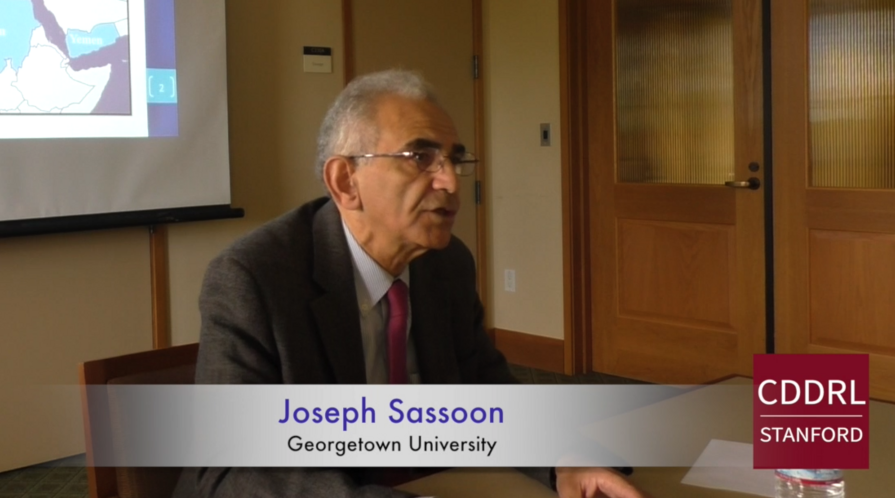Georgetown scholar analyzes the internal workings of authoritarianism in the Arab world [VIDEO]
Georgetown scholar analyzes the internal workings of authoritarianism in the Arab world [VIDEO]

As part of the Program on Arab and Reform and Democracy speaker series, Georgetown Scholar Joseph Sassoon discussed his recently released book in a talk on April 13, 2016. Titled Anatomy of Authoritarianism in the Arab Republics, the book examines the system of authoritarianism in eight Arab republics. It portrays life under these regimes and explores the mechanisms underpinning their resilience. How did the leadership in these countries create such enduring systems? What was the economic system that prolonged the regimes’ longevity, but simultaneously led to their collapse? Why did these seemingly stable regimes begin to falter? This book seeks to answer these questions by utilizing the Iraqi archives and memoirs of those who were embedded in these republics: political leaders, ministers, generals, security agency chiefs, party members, and business people. Taking a thematic approach, the book begins in 1952 with the Egyptian Revolution and ends with the Arab uprisings of 2011. It seeks to deepen our understanding of the authoritarianism and coercive systems that prevailed in these countries and the difficult process of transition from authoritarianism that began after 2011.
